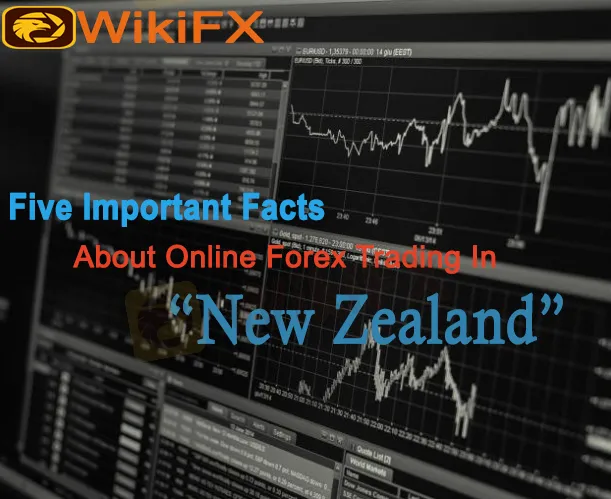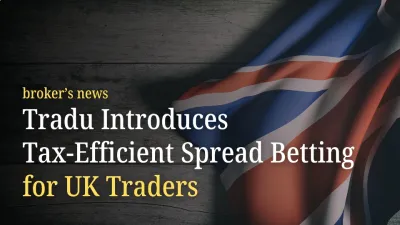简体中文
繁體中文
English
Pусский
日本語
ภาษาไทย
Tiếng Việt
Bahasa Indonesia
Español
हिन्दी
Filippiiniläinen
Français
Deutsch
Português
Türkçe
한국어
العربية
Five Important Facts About Online Forex Trading In New Zealand
Abstract:Forex Trading is regulated in New Zealand by Financial Markets Authority, and you can trade via FMA regulated forex & CFD brokers.

Forex Trading involves buying a currency by selling another, from your trading account, and waiting for the exchange rate to appreciate, and then you sell.
This is done in the form of contracts such as Contract for difference, (CFD) that lets you benefit from exchange rate changes in the currency, without actually owning the currency.
However, once you enter the forex market as a retail trader, the risks are the same irrespective of what part of the globe you are located. Almost 80-90% of the retail forex traders lose money. For every dollar you make, somebody somewhere has lost a dollar.
Market risk and counterparty risk are all too real in the forex market and so adequate knowledge is required before venturing out to trade.
These are some important facts about forex trading in New Zealand you should be aware of before you decide to put your money into trading forex.
1. Forex Brokers need to be licensed with FMA
The Financial Markets Authority (FMA), regulate online forex trading in New Zealand. They issue licenses to provide derivative products to forex brokers.
Each license they issue carries a unique Financial Service Provider (FSP) number, which identifies the broker. For example, CMC markets NZ has an FSP number of 41187.
You should ensure that your forex broker is licensed by the FMA to provide derivative products to the public as a “Derivatives Issuer” and not any other service.
This is important because when most people see an entity with an FSP number, they instantly assume that person is licensed to be a forex broker. This is not always true as that person could be licensed to provide other services, and could be acting outside his license permit.
To confirm if a broker is carrying an authentic license, get their FSP number from the regulation corner of their website, and take the following steps:
Visit the FMA website
Navigate to the search financial service provider page.
Input the FSP number in the search bar and click on “search”
When you deal with an FMA regulated broker, you can rest assured that your broker is being held accountable because there are serious penalties for brokers who act fraudulently.
As per Forex Beginner New Zealand, although some brokers are licensed by regulators from other countries, it is important to only register with the ones licensed by the FMA in New Zealand for safety of your funds and transparency.
“There are multiple foreign CFD brokers that accept clients from NZ, but these brokers are high risk if they are not licensed in NZ, and clients must not deposit funds with these brokers for safety of funds.” warns Rahul from Forex Beginner.
“Clients must also check the ‘License Category’ & the ‘License Status’ on FMAs website for Licensed entities to make sure that the broker is authorized to offer the services which they claim they are licensed to offer.”
2. Trading forex CFD Contracts involves use of leverage
Trading with leverage means you take a loan from your broker to trade with. Your broker offers leverage to trade derivative products like Contract for difference (CFD).
Leverage is expressed in form of a ratio and forex brokers in New Zealand can offer leverage as high as 1:500 to traders. This means that with $1 of your trading capital you can trade currency worth $500.
You should be meticulous while using leverage, because it could aggravate your losses, should the market move against you.
Example 1
You think that the USD will strengthen against the NZD, so you intend to buy CFD contracts for 100,000 units of NZD/USD at an exchange rate of 0.6616, to profit from that rise without actually owning the currency pair.
You need a total of $66,160 to make this purchase so your broker allows you a leverage of 1:500.
However, you must put down an initial margin deposit, to show good faith while your broker lends you the difference
This initial margin is calculated as 1/500 x $66,160 = $132.32
So, with $132.32 you can trade currency pairs worth $66,160 and this is the effect of leverage!
Now suppose you were wrong in your prediction and the USD/NZD falls to 0.6602, you lose 0.6616 – 0.6602 = 0.0014 or 14 pips
Your loss translates to 0.0014 x 100,000 which is $140
You have lost 105% of your initial investment of $132.32, and dont forget you still have to repay the loan from your broker.
Had you opted for a modest leverage of 1:20, your initial margin would now be $3,308 (meaning 1/20 x $66,160) and the loss of $132.32 would have been just 4% of your initial investment of $3,308
Leverage increases your losses so as a trader you should shy away from excessive leverage.
3. You pay Tax on Earnings
The New Zealand government levies a Resident Withholding Tax (RWT) on all residents who earn income from a job or from investments. The tax rate depends on how much your yearly income is. See the table below:

As seen from the table above, if you earn below $14,000 a year from your forex trading, you will be taxed a resident withholding tax rate of 10.5% and so forth.
4. Stop Loss orders are essential, but they dont work always
This is not to discourage you from using stop loss orders, but you need to understand they may not work well during high market volatility.
A stop loss order automatically stops you out of your open position, when the exchange rate of a currency pair crosses the stop price which you have set.
It then executes a market order to sell off your currency (or buy currency as the case may be) at the next available price to limit your losses.
Stop loss orders do not prevent loss but they limit losses.
However, during periods when the market is unstable, and sometimes during weekends when the market is closed, prices could “gap” or leap past your stop price. This causes you to close your trading position at a price lower than what you envisaged.
Example 2
Imagine you spend $66,160 to buy 100,000 units of NZD/USD, as a CFD contract at an exchange rate of 0.6616 and you place your stop loss order at 0.6615 (which is the stop price).
You have agreed to bear a loss of 0.6616 – 0.6615= 0.0001 or 1 pip if the market moves against you.
By placing your stop loss at 0.6615, your acceptable loss is $10.
During periods of high volatility, the exchange rate can leap from 0.6616 to 0.6611 without passing through 0.6615, this is called gapping.
The stop loss order will now be triggered at 0.6611 instead of your stop price of 0.6615.
The difference is now 0.6615 – 0.6611 = 0.0005 or 5pips
Your loss is now $50.
The point here is that you planned to accept a loss of $10, but you ended up accepting a higher loss of $50, because your stop loss order was executed at 0.6611 instead of 0.6615 which you set.
5. You need plenty of extra money on standby
Exchange rates can move against your trading position.
Political events, conflict, bad news in the media, amongst other factors, can cause a currency to lose value really fast.
As seen in example 1 above, when you borrow money to buy currency, you are required to make a good faith deposit called an initial margin.
As you keep trading, you may make losses and once these losses begin to consume your initial margin deposit, your broker quickly puts a “margin call” across to you.
A margin call is when your broker asks you to deposit more money into your margin account, to bring your initial margin back to what it is required. It may not always be a phone call; it could be a text message or an email.
If you cannot come up with the required money, your broker will close all your open trades so as to stop your account from going into negative. When this happens, you bear the losses.
This is why you need to have extra money on standby.
You also have to keep money for fees such as brokerage commission, overnight swap fee, inactivity fee, guaranteed stop loss fees, spread etc. You can compare forex brokers to see which ones offer fees that suit you.
Dont get caught by Unawares
Before trading forex, you should read and add knowledge as it can be very technical. You should also understand the risks so you know what to expect.
Stop loss orders should be used to limit losses, but when markets are very volatile you can use guaranteed stop loss orders (GSLOs).
GSLOs ensure your stop order is executed at your specified stop price but your broker may require you to pay a fee for using them.
You should also avoid using too much leverage as it could make your losses bigger and make you lose money faster than you think. Avoid forex scams that offer you “no loss trading” and guaranteed returns as nothing is guaranteed in the forex business.

Disclaimer:
The views in this article only represent the author's personal views, and do not constitute investment advice on this platform. This platform does not guarantee the accuracy, completeness and timeliness of the information in the article, and will not be liable for any loss caused by the use of or reliance on the information in the article.
Read more

Is Your Zodiac Sign Fated for Stock Market Success in 2025?
The idea that astrology could influence success in the stock market may seem improbable, yet many traders find value in examining personality traits linked to their zodiac signs. While it may not replace market analysis, understanding these tendencies might offer insights into trading behaviour.

Good News Malaysia: Ready for 5% GDP Growth in 2025!
Malaysia's economy is on track to sustain its robust growth, with GDP expected to exceed 5% in 2025, according to key government officials. The nation's economic resilience is being driven by strong foreign investments and targeted government initiatives designed to mitigate global economic risks.

Oriental Kopi’s IPO: Worth the Buzz or Not?
Kopi Holdings Bhd, a café chain operator under the brand Oriental Kopi, is gearing up for its listing on the ACE Market of Bursa Malaysia. The company has garnered a positive valuation from Mercury Securities Sdn Bhd, which has assigned a fair value of 68 sen per share, citing strong earnings growth potential driven by outlet expansions and increasing contributions from fast-moving consumer goods (FMCG) sales.

Tradu Introduces Tax-Efficient Spread Betting for UK Traders
Tradu’s introduction of tax-efficient spread betting and groundbreaking tools like the Spread Tracker signals a new era of accessible, competitive, and innovative trading solutions for UK investors.
WikiFX Broker
Latest News
Bitcoin in 2025: The Opportunities and Challenges Ahead
BI Apprehends Japanese Scam Leader in Manila
Join the Event & Level Up Your Forex Journey
Is There Still Opportunity as Gold Reaches 4-Week High?
Bitcoin miner\s claim to recover £600m in Newport tip thrown out
Good News Malaysia: Ready for 5% GDP Growth in 2025!
FXCL Lucky Winter Festival Begins
Warning Against MarketsVox
Is the stronger dollar a threat to oil prices?
Rising Risk of Japan Intervening in the Yen's Exchange Rate
Currency Calculator






